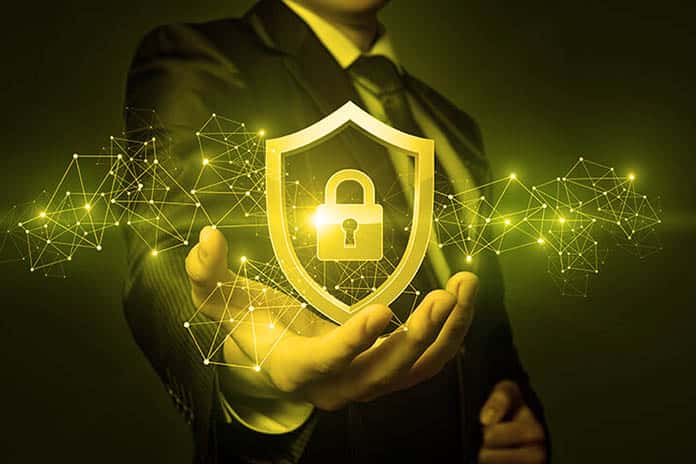Surfing the net is not always a safe place for users. Furthermore, according to the latest announcements from the World Economic Forum, cybercrime on the internet is among the four biggest risks that we face today.
The National Institute of Cybersecurity (Incibe), ensures that last year has reached a new record in cyberattacks, with a total of 123,064 security incidents. Of these, 70% targeted SMEs (small and medium-sized companies) and citizens, making prevention essential to deal with intruders and protect your data.
There really is no magic method that makes us 100% protected from cyber attacks. But, in addition to contacting experts, it is advisable to put obstacles and make the path more difficult for hackers.
Among the main measures that both you and your company need to adapt to keep intruders away from your company, we recommend paying attention to the following 10 best practices:
Table of Contents
1. Always Use Strong Passwords
Implementing an effective password policy, both personally and within the company, becomes vital to prevent unwanted attacks. Renewing the keys periodically should be mandatory.
These are the recommendations for good use of passwords:
- Choose complex passwords
- Change passwords frequently
- Avoid using dates, ID or phone
- Do not leave passwords in plain sight
- Do not give passwords to third parties
- Do not use passwords on public computers.
2. Do Not Run Programs Whose Link Reaches Us By Email
Emails are one of the main sources of virus entries. Employees need to be made to be especially careful with the links attached to emails and also with attachments. It is necessary to be cautious when installing executable files (.exe) to avoid greater evils.
3. Know The New Viruses Circulating On The Network
Just as we are alert not to fall into the hoaxes of the ” fake news “, it is also necessary to be informed of viruses on the internet. Not everything that is shared by “Whatsapp” or read on “Facebook” is true.
IMPORTANT NOTE: With Artificial Intelligence the same thing happens. It is necessary to know how to differentiate reality from fantasy. You can read more in our post dedicated to erroneous myths of Artificial Intelligence.
Also Read: 3 Ways Hackers Can Attack Everyone Who Works From Home
4. Make Backup Copies
Whether using USB or in the cloud, it should be a priority to make regular copies of all corporate files. Prevention is the best tool to prevent a hacker from leaving us without access to valuable company documentation.
5. Avoid Unwanted Access To Our Information
The best way to avoid unwanted exposure to our equipment is to encrypt the information (be it desktop computers, tablets or mobile phones), as well as an encryption of information on both the computer’s disk and backups.
6. Download Operating System Updates
Renewing applications and operating systems prevent the entrance of Malware and hackers. Keeping the operating system up-to-date on its updates keeps out system vulnerabilities that have already been detected.
7. Do Not Share The Network With Unknown Users
Be careful whoever lets you into their networks. The recommendation is not to let in and remove invitations from unknown people. If your business wants to share a public network for customers, it is best to create a completely separate guest Wi-Fi network from that used by your employees.
8. Before Making A Payment, Certify That It Is In A Safe Place
When we enter a web page we do not know if it is safe or not in itself, but because the browser warns us about it. When we see the green padlock symbol in the browser, it means that the website is completely secure. Only then can we trust that page to enter passwords and even give our credit card number to make a payment.
9. Don’t Trust Suspicious Gifts or Promotions
It is common to receive emails saying that we have just been awarded as winners of a succulent prize, but in reality, they are hooks to enter our computers and mobile devices. It is very important not to trust these notifications and eliminate them to avoid being attacked by viruses.
10. Do Not Provide Your Data
Common sense is essential for a good Internet experience. Just like in real life, never give your personal details to strangers. On the Internet, share information with people you already know and trust.
Any measure is little to fight viruses and hackers on the network. Today, safe internet day is a good time to share these good practices with your acquaintances and make the internet a safer place for everyone. Share our article and if you have any more recommendations to add we would like to read it in the comments.
Also Read: How To Protect Your Devices From Malware?


